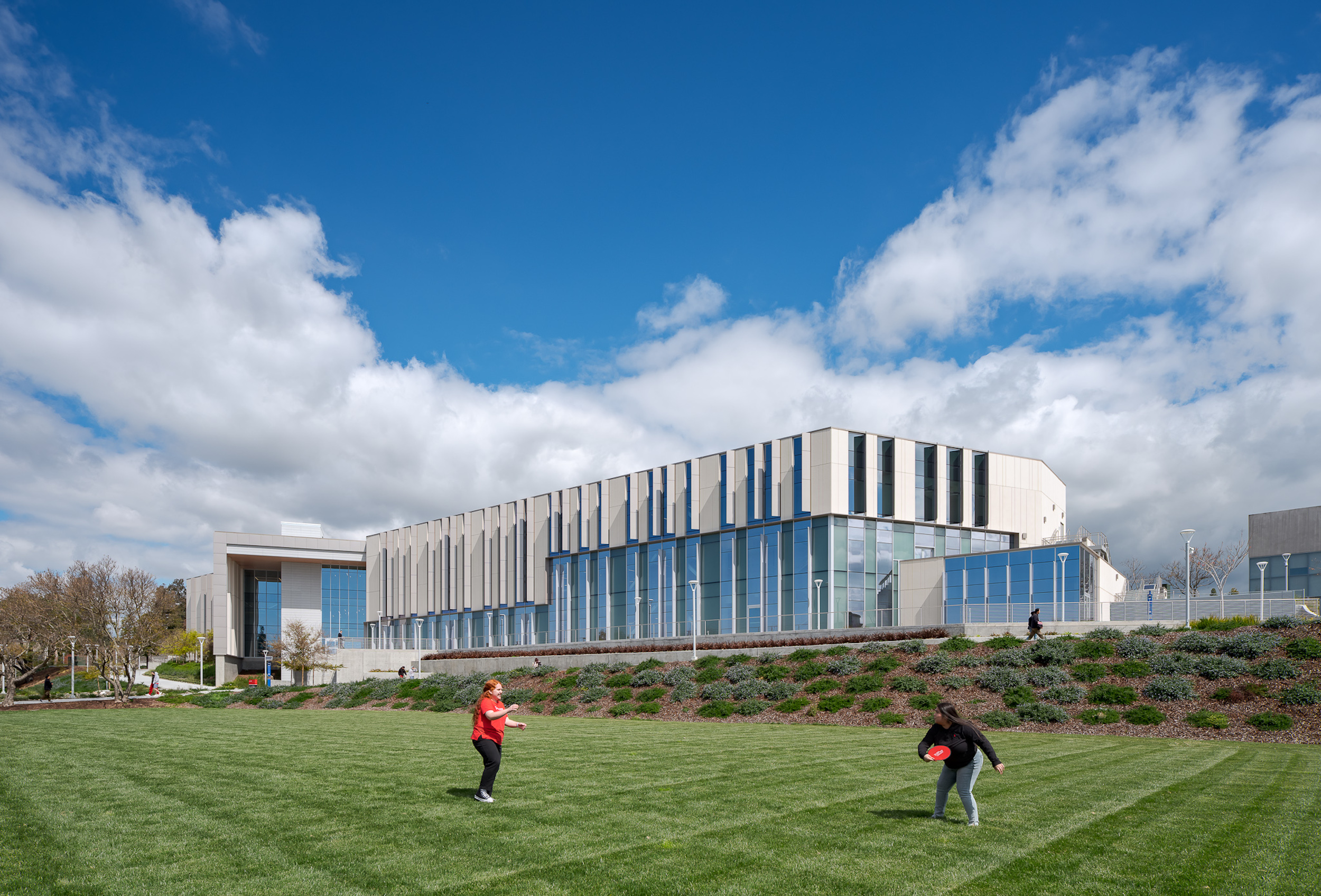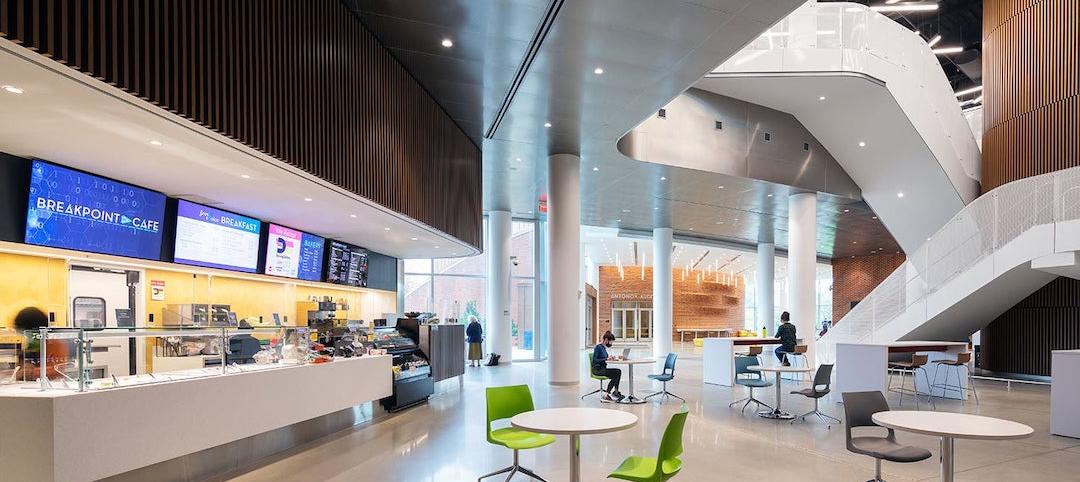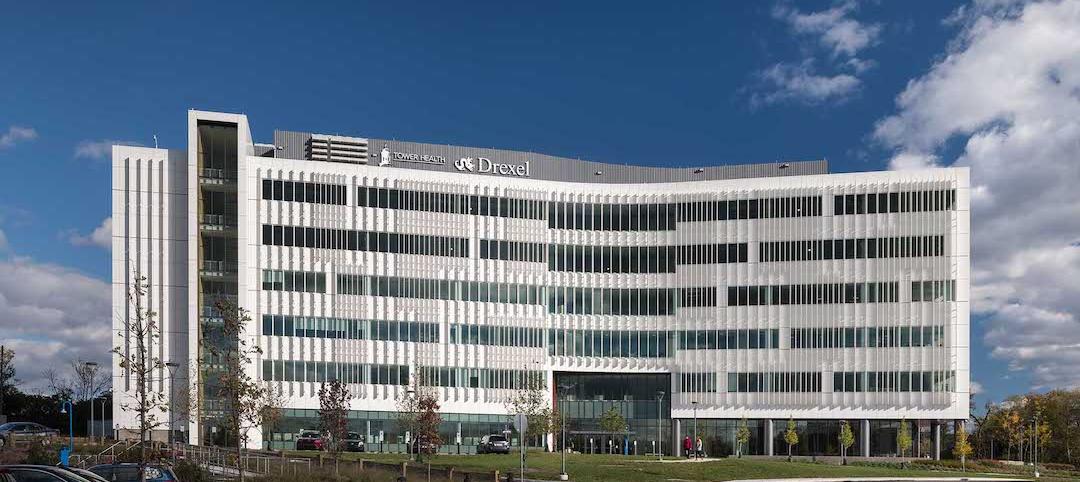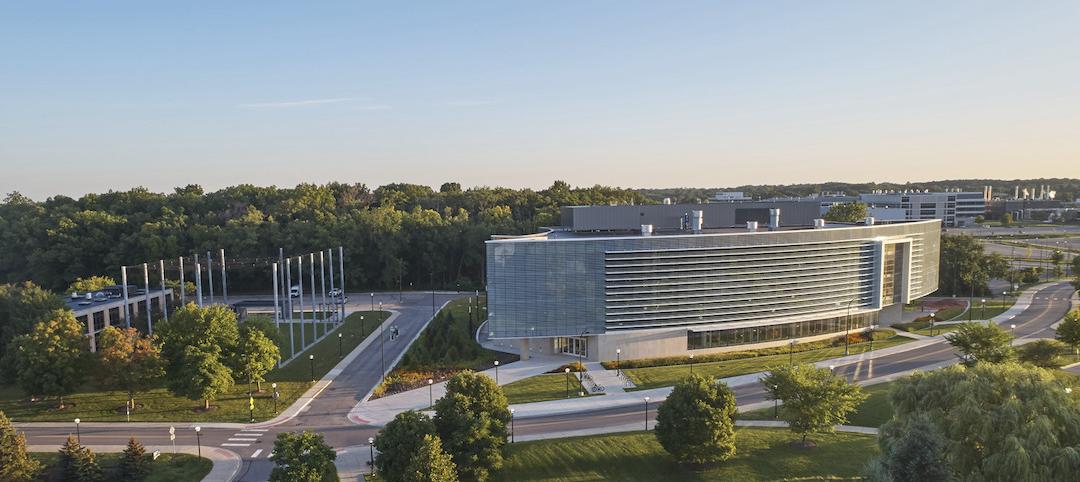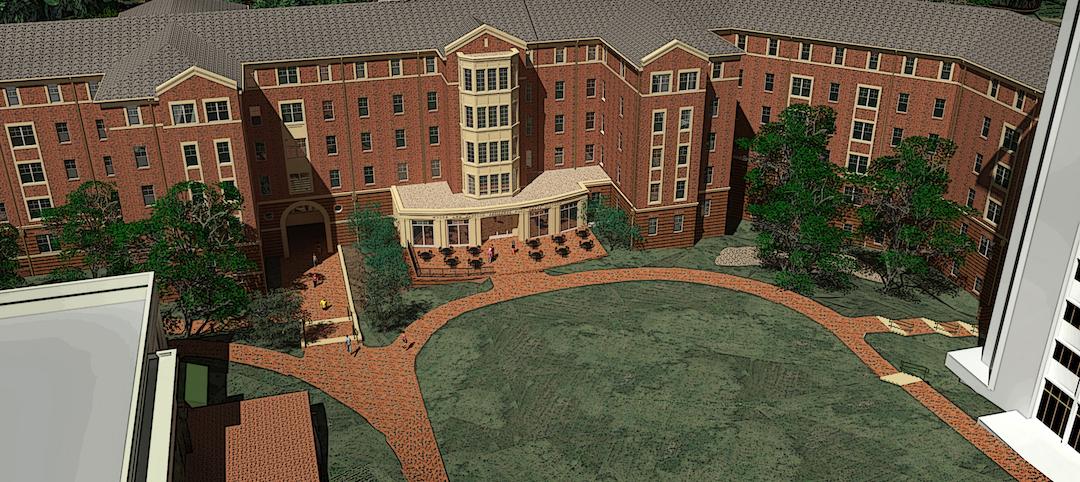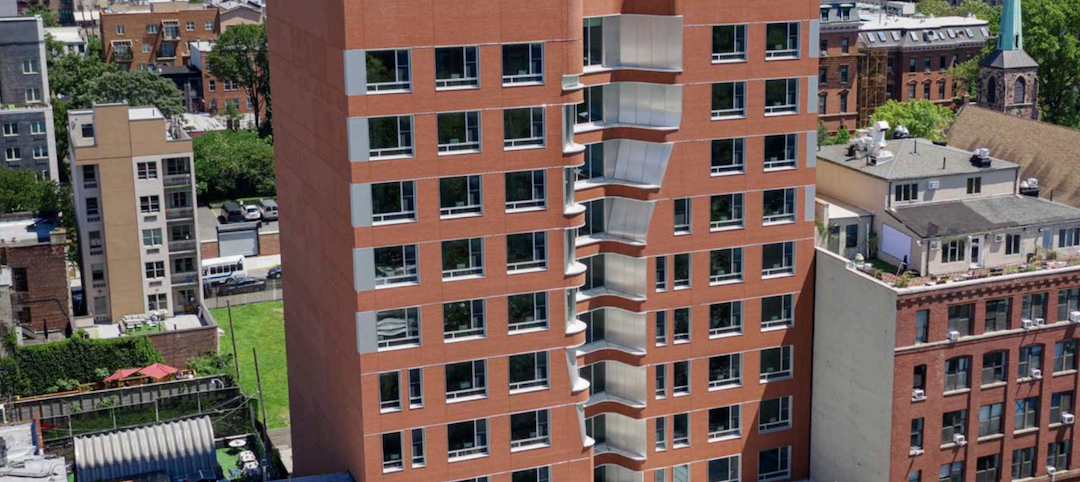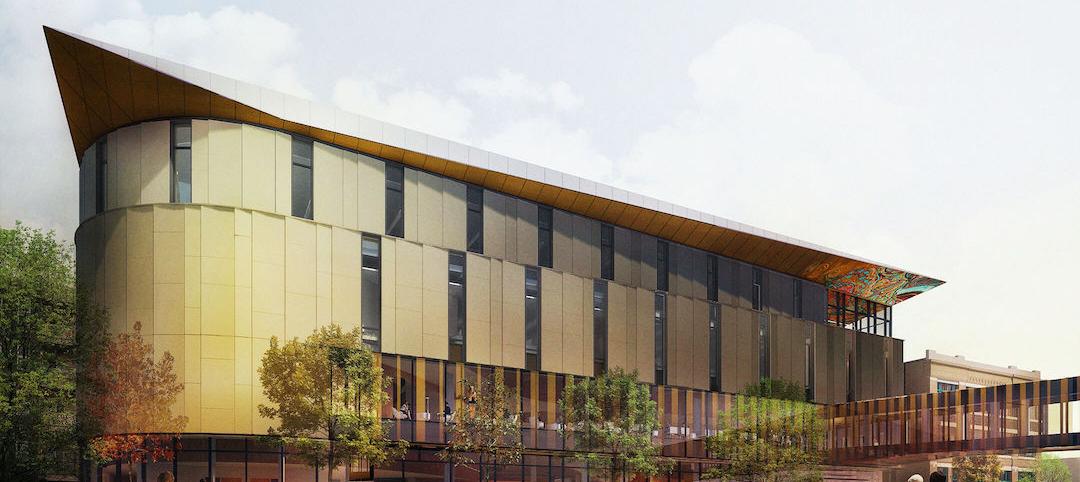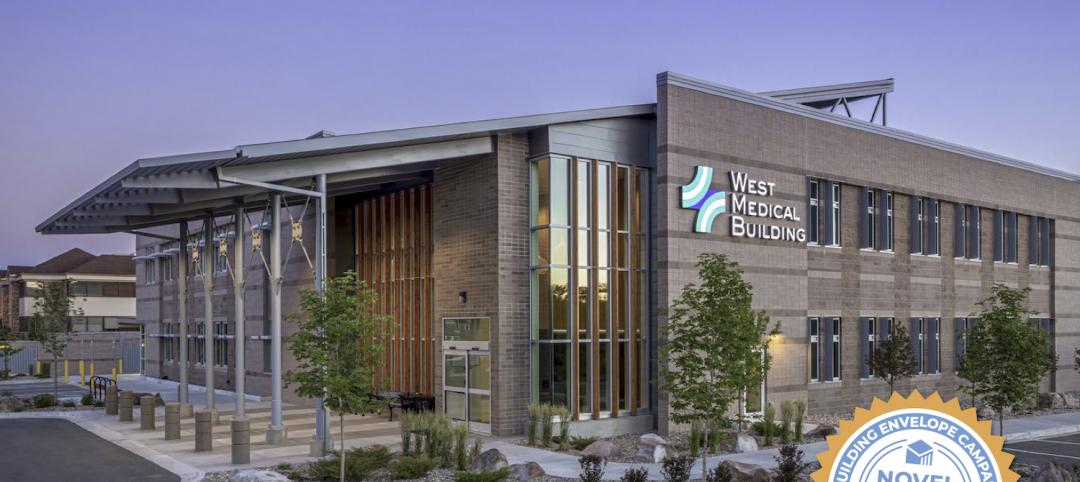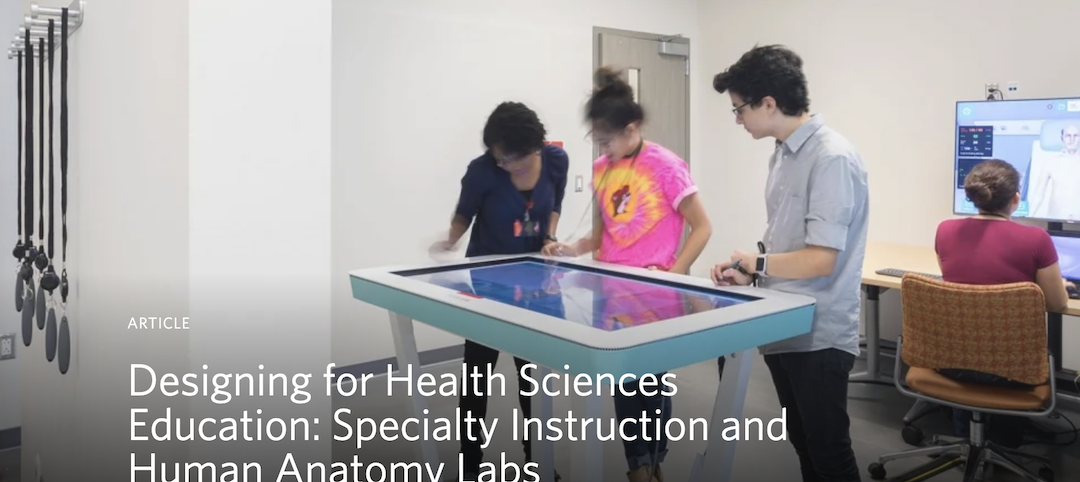A three-story “library-plus” building at California State University, East Bay (CSUEB) that ties together the upper and lower campuses was recently completed. The 100,977-sf facility, known as the Collaborative Opportunities for Research & Engagement (“CORE”) Building, is one of the busiest libraries in the CSU system. The previous library served 1.2 million visitors annually.
The new building offers students 700 more seats and 21 more group study rooms than the facility it replaced. Much more than a library, CORE brings traditional library services together with learning, innovation, and technology; collaboration and engagement; and social justice, diversity and sustainability.
It houses the Student Center for Academic Achievement (SCAA—for peer tutoring and study groups) and the Hub for Entrepreneurship, both of which help students become self-directed learners in the Information Age economy.
Equipped with state-of-the-art information and audio-visual technologies, the building provides diversity of spaces to support study rooms and collaborative commons along with multimedia production and library spaces for print and digital collections, archives, and special collections.
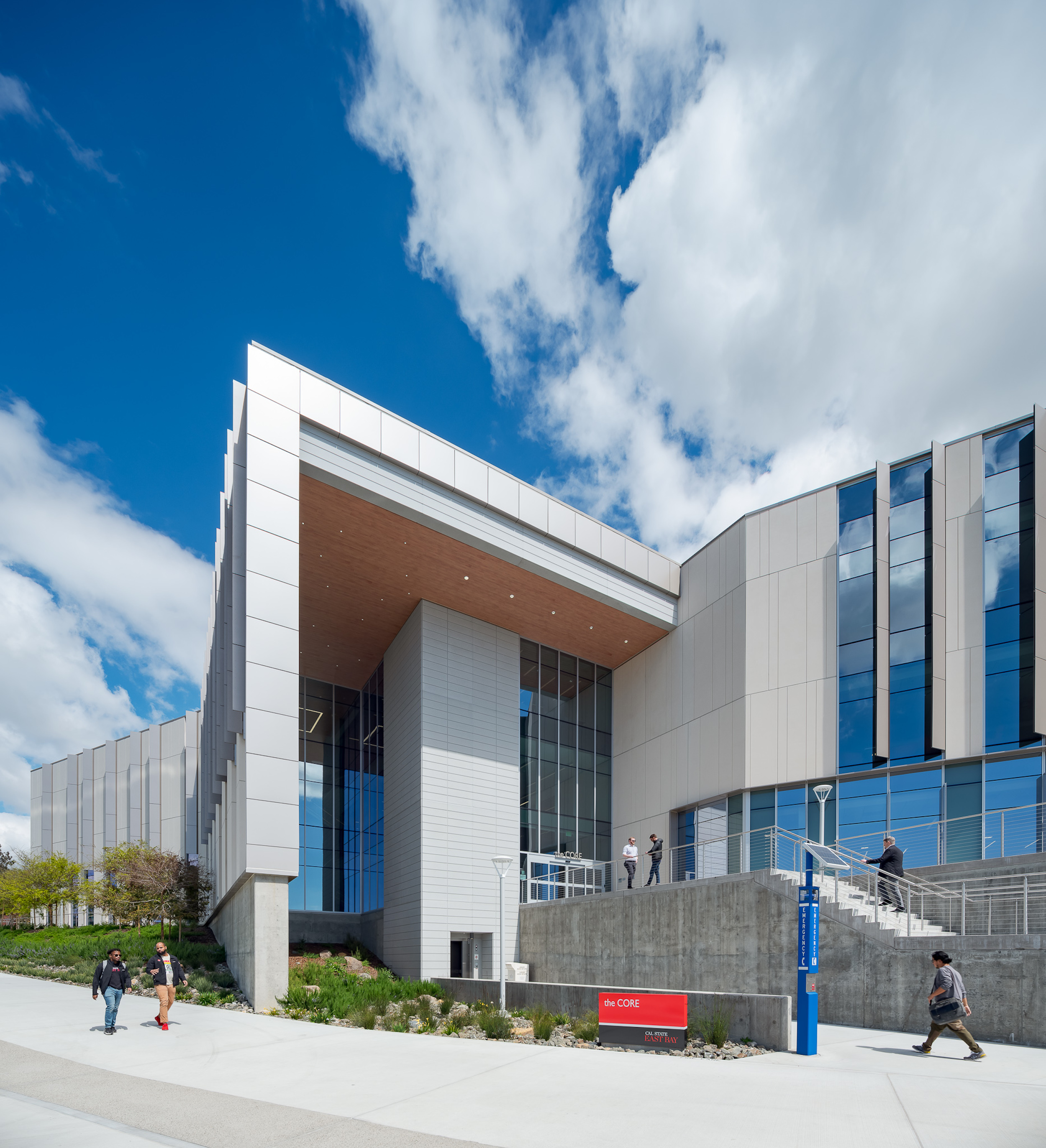
Generous open space and fenestration help knit the interior into a cohesive sum of many essential parts. In anticipation of earning LEED Gold certification, the building’s HVAC system aims for healthy indoor air quality, high levels of user controllability, and exceptional energy efficiency.
Each of CORE’s three stories offers a different approach to learning designed to help develop lifelong skills. The library is on Level Two. Level One houses a collaboration zone and innovation labs. Level Three is home to the SCAA and a roof deck provides an additional place for quiet study.
The visual dialogue within the building’s interior emphasizes the relationship between spaces that serve both the academic and social needs of students. CORE’s structure and functionality were designed to help CSUEB hone a distinct identity in the Bay Area’s rich educational landscape and enable it to be viewed as something more than a “commuter school.”
On the building team:
Owner and/or developer: California State University, East Bay
Architect of record, design architect: Carrier Johnson + Culture (Exterior)
Associate Architect: Anderson Brulé Architects (Interior)
MEP engineer: Integral Group
Structural engineer: Forell/Elsesser Engineers
General contractor/construction manager: Rudolph and Sletten
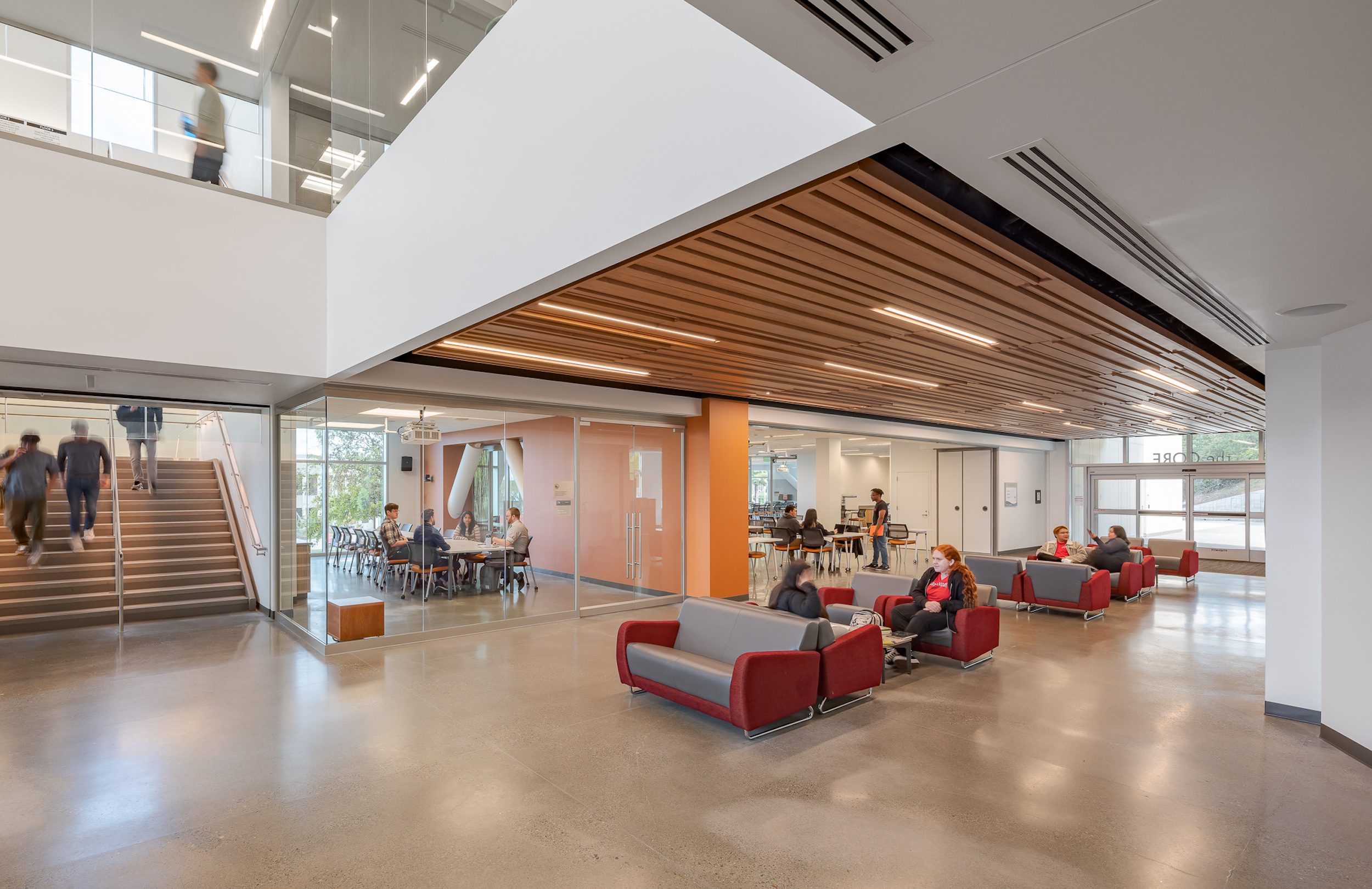
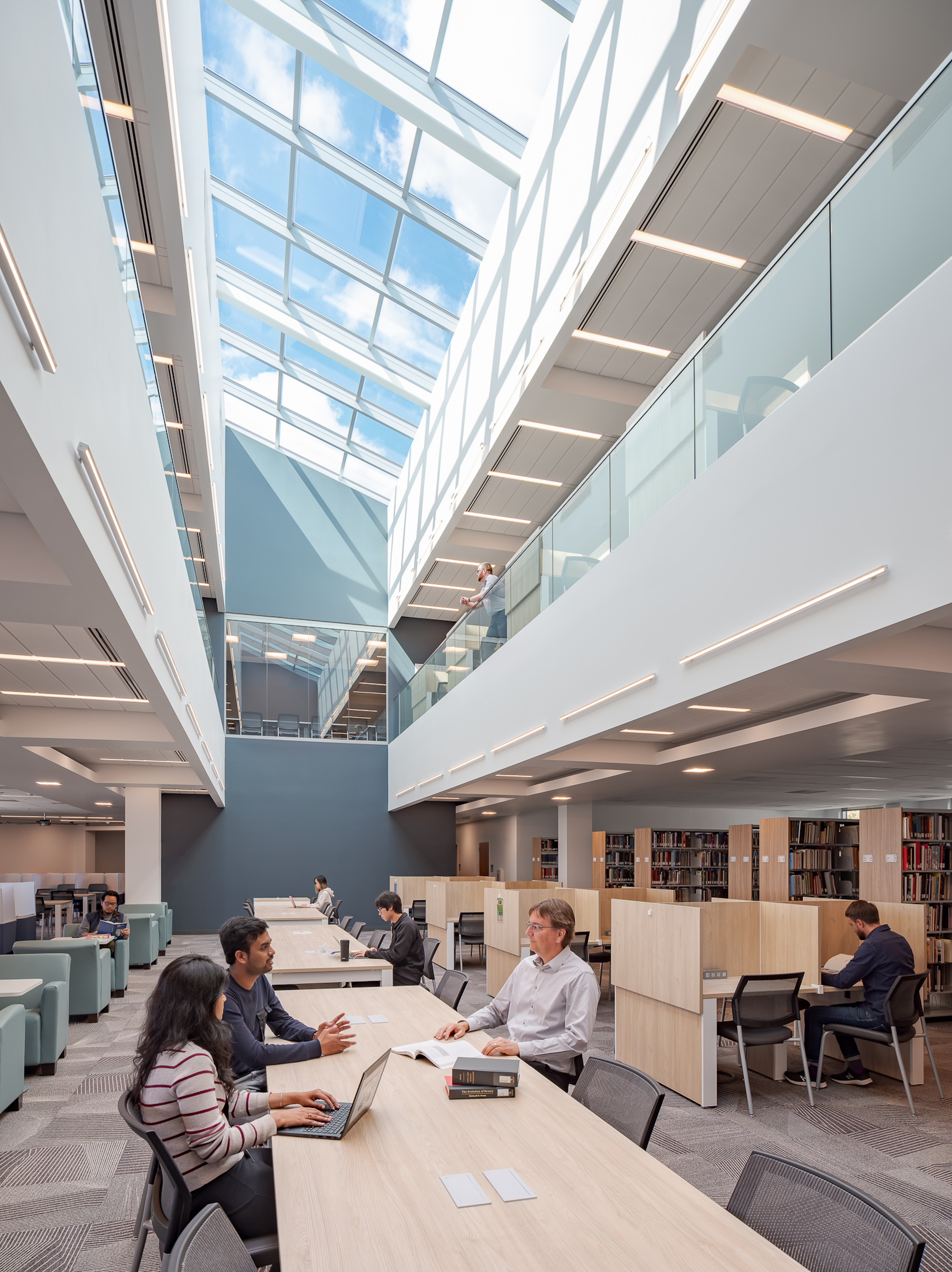
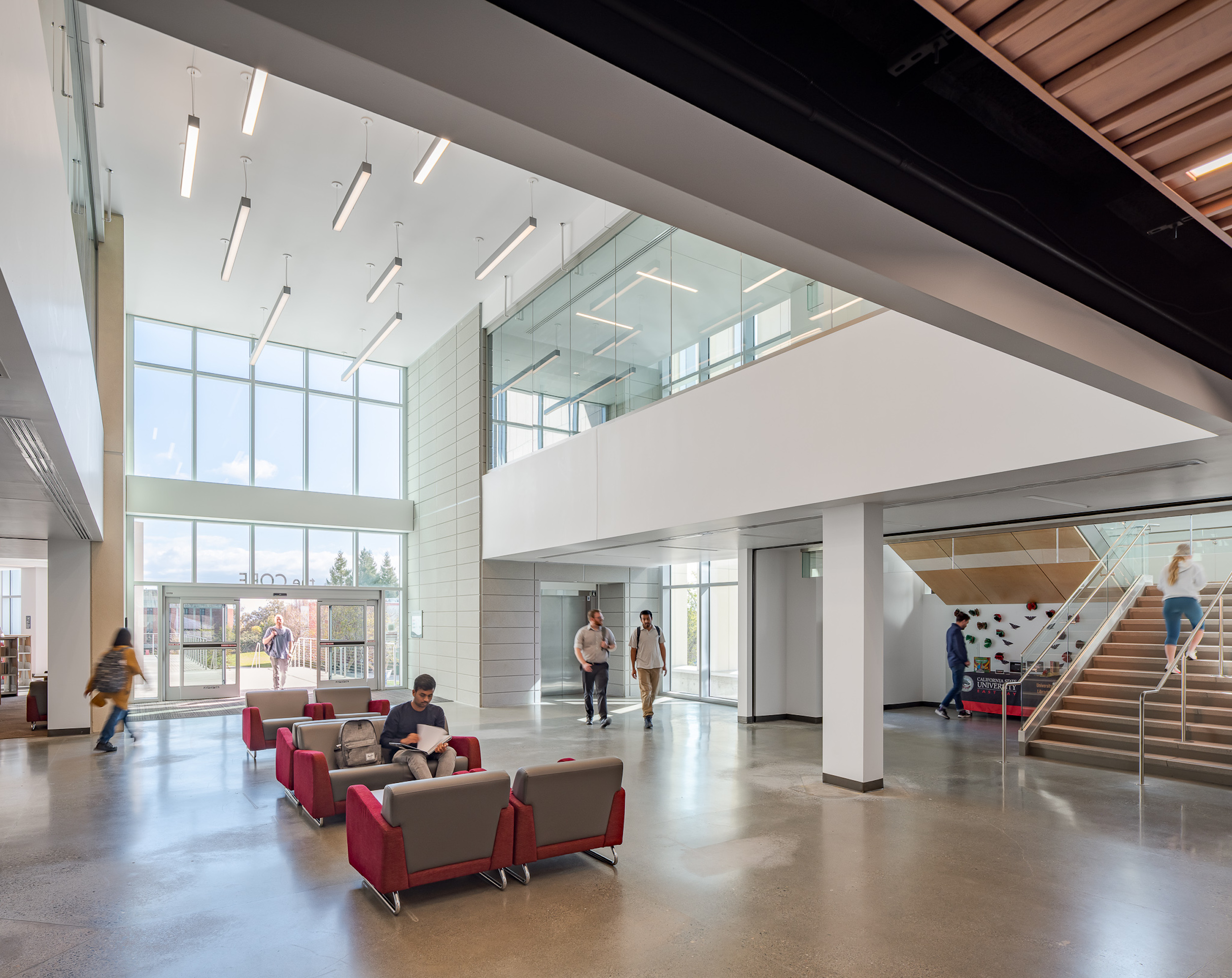
Related Stories
University Buildings | Jan 11, 2022
Designing for health sciences education: supporting student well-being
While student and faculty health and well-being should be a top priority in all spaces within educational facilities, this article will highlight some key considerations.
University Buildings | Jan 6, 2022
New Facility completes at Drexel University College of Medicine at Tower Health
SLAM designed the project.
University Buildings | Jan 4, 2022
Henning Larsen to design new university building in the Alps
The project will be Henning Larsen’s first in Austria.
University Buildings | Dec 8, 2021
The University of Michigan’s Ford Robotics Building completes
HED designed the project.
University Buildings | Nov 23, 2021
The University of North Carolina at Charlotte’s new residence hall begins construction
KWK Architects designed the project.
University Buildings | Nov 18, 2021
Pratt Institute Residence Hall completes, opens
Hanrahan Meyers Architects, in collaboration with Cannon Design, designed the project.
Designers / Specifiers / Landscape Architects | Nov 16, 2021
‘Desire paths’ and college campus design
If a campus is not as efficient as it could be, end users will use their feet to let designers know about it.
University Buildings | Nov 15, 2021
Red River College Polytechnic’s new Manitou a bi Bit daziigae opens
Diamond Schmitt and Number TEN Architectural Group designed the project.
Cladding and Facade Systems | Oct 26, 2021
14 projects recognized by DOE for high-performance building envelope design
The inaugural class of DOE’s Better Buildings Building Envelope Campaign includes a medical office building that uses hybrid vacuum-insulated glass and a net-zero concrete-and-timber community center.
University Buildings | Sep 28, 2021
Designing for health sciences education: Specialty instruction and human anatomy labs
It is a careful balance within any educational facility to provide both multidisciplinary, multiuse spaces and special-use spaces that serve particular functions.


